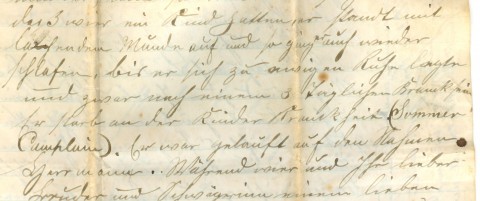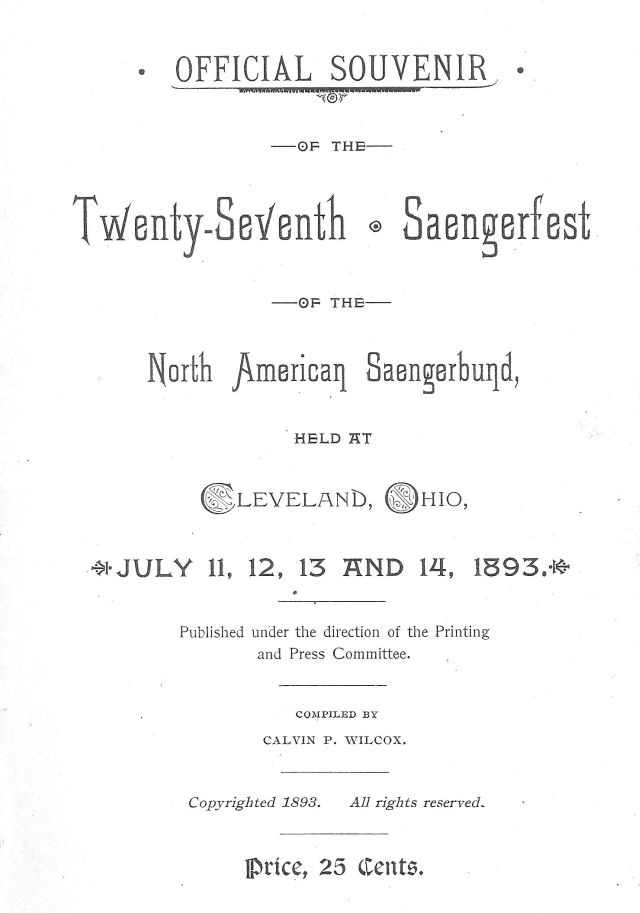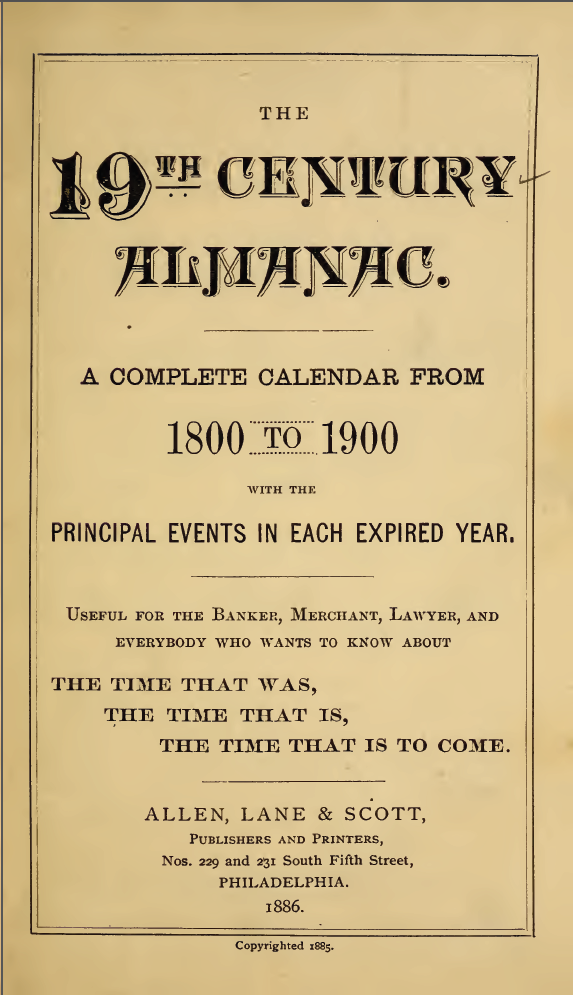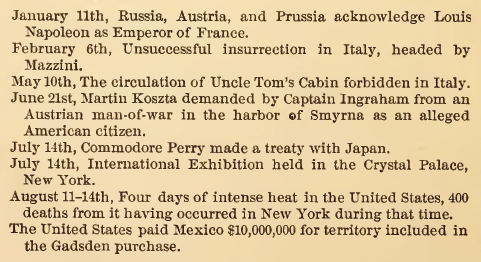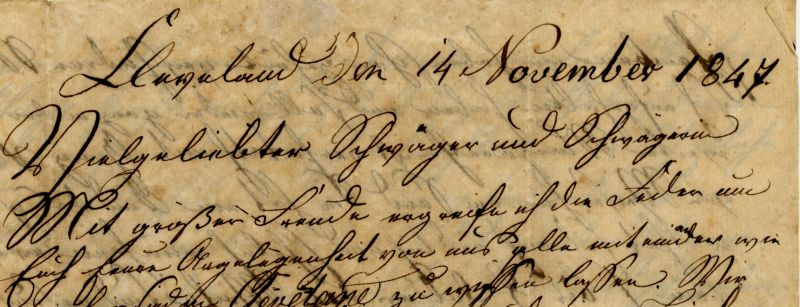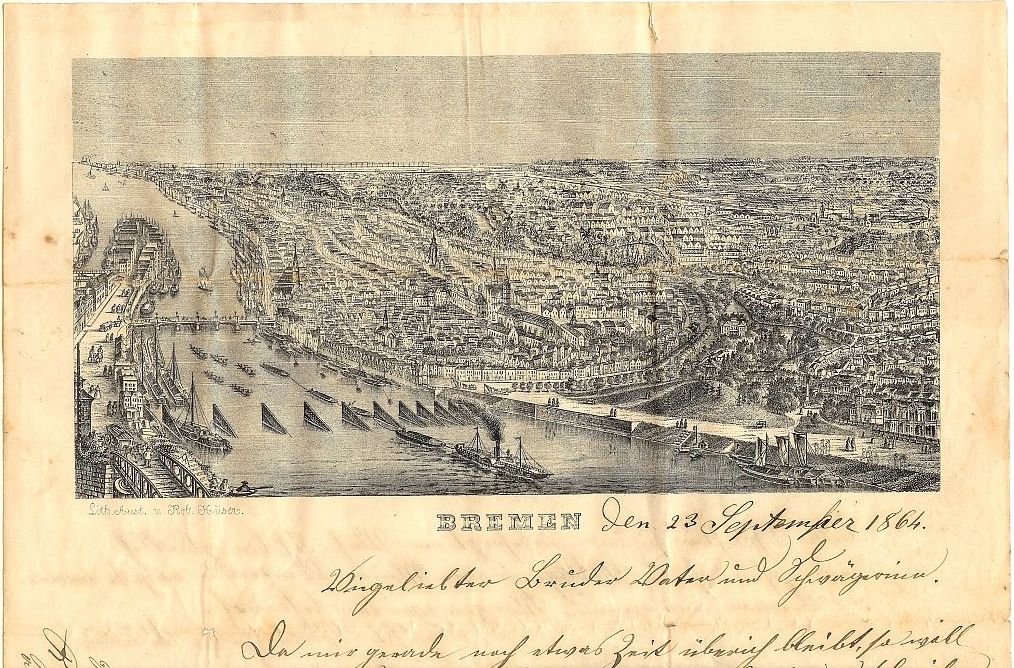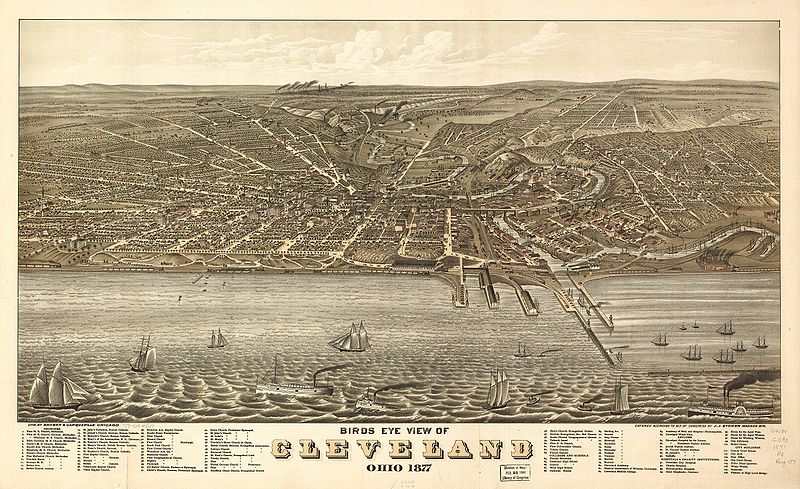After the banner immigrant years of 1852-1854, arrivals dropped off some. The list below, from the The Jubilee Edition of the Cleveland Wächter und Anzeiger 1902, shows the year of arrival in Cuyahoga County, followed by name, year of birth, place of birth, and occupation.
1855: Dröge, Friedrich, born 1828 in Celle, Hanover, furniture maker.
Kneiss, Louise M., born 1837 in Frankfurt am Main, Hessia-Nassau, private person.
Rink, J. P., born 1832 in Zweibrücken, Rhenish Palatinate, private person.
Sältzer, Carl, born 1829 in Ilbersheim, Rhenish Palatinate, bookkeeper.
1856: Clauss, Jeanette, Deidelsheim, Baden, private person.
Freese, Christoph, born 1834 in Rabbar, Hanover, smith.
Ganss, Jacob, Frankenthal, Rhenish Palatinate, police sergeant.
Kauel, Christian, born 1829 in Switzerland, railroader.
La Marche, Franz C., Blieskastel, Rhenish Palatinate, furniture business.
Lards, Heinrich, born 1833 in Stavenhagen, Mecklenburg, building contractor.
Mayer, Adolph, born 1826 in Mettenheim, Rhenish Hessia, merchant.
Seeholzer, David, born 1829 in Baden, Baden, private person.
Stohlmann, J. H., born 1839 in Bünde, Westphalia, cabinetmaker.
Stüber, Christian, born 1829 in Obersilmingen, Württemberg, cabinetmaker.
1857: Brommhardt, Jacob, born 1839 in Schlierbach, Electoral Hessia, tavernkeeper.
Ebert, George E., born 1831 in Central Franconia, Bavaria, smith.
Egert, Kilian, born 1834 in Oberzelle, Electoral hessia, private person.
Giessen, Carl, born 1834 in Zweibrücken, Rhenish Palatinate, private person.
Harm, Michael, born 1841 in Freinsheim, Rhenish Palatinate, wagon manufacturer (the subject of my thesis).
Krauss, George, born 1830 in Rhenish Palatinate, private person.
Lätsch, William F., born 1842 in Leipzig, Saxony, letter carrier.
Löber, C. W., born 1836 in Darmstadt, Hessia-Darmstadt, cabinet maker
Löber, Julia, born 1839 in Homburg, Hessia-Darmstadt, private person.
Miller, Charles, born 1857 in Holzhausen, Hessia-Darmstadt, tanner.
Schendel, Ludwig Sam., born 1831 in Colmar, Prussia, insurance business.
Schuch, John, born 1838 in Hattenbach, Electoral Hessia, house painter.
Trope, George, born 1833 in Lüchte, Waldeck, private person.
1858: Behm, Whilhelm, born 1844 in Motsdorf, Mecklenburg, farmer.
Heidinger, Josef, born 1838 in Baden-Badenm Baden (sic), baker.
Lang, Josef, born 1832 in Romelsbach, Württemberg, private person.
Morawetz, Isidor, born 1831 in Kranwitz, Prussia, tailor.
Stern, Jacob, born 1837 in Ziegenhain, Electoral Hessia, shoemaker.
1859: Beil, Sigmund, born 1833 in Stetten, Baden, shoemaker.
Kunze, Carl, born 1837 in Angermünde, Prussia, iron founder.
Moser, Arnold, born 1837 in Burgdorf, Switzerland, bookkeeper.
Müller, Ferdinand, born 1836 in Lübersdorf, Mecklenburg, coal dealer.
Reissland, Auguste, born 1835 in Rudolfstadt, Schwarzburg, private person.
Schmidt, F. W., born 1840 in Wimmern, Hanover, shoemaker.
1860: Bittschofsky, Carl, born 1827 in Breslau, Silesia, private person.
Emerich, U., born 1839 in Odenheim, Baden, saddler.
Forsch, Abraham, born 1840 in Teschenmostel, Rhenish Palatinate, insurance agent.
Gehring, John, born 1842 in Walsheim, Rhenish Hessia, farmer.
Hach, John, born 1842 in Uttrichshausen, Electoral hessia, saddler.
Heck, Paul, born 1841 in Schönengrund, Württemberg, baker.
Müller, Christine, Brecksville, farmer.
Schröder, Fred W., born 1824 in Trabitz, Prussia, teacher.

